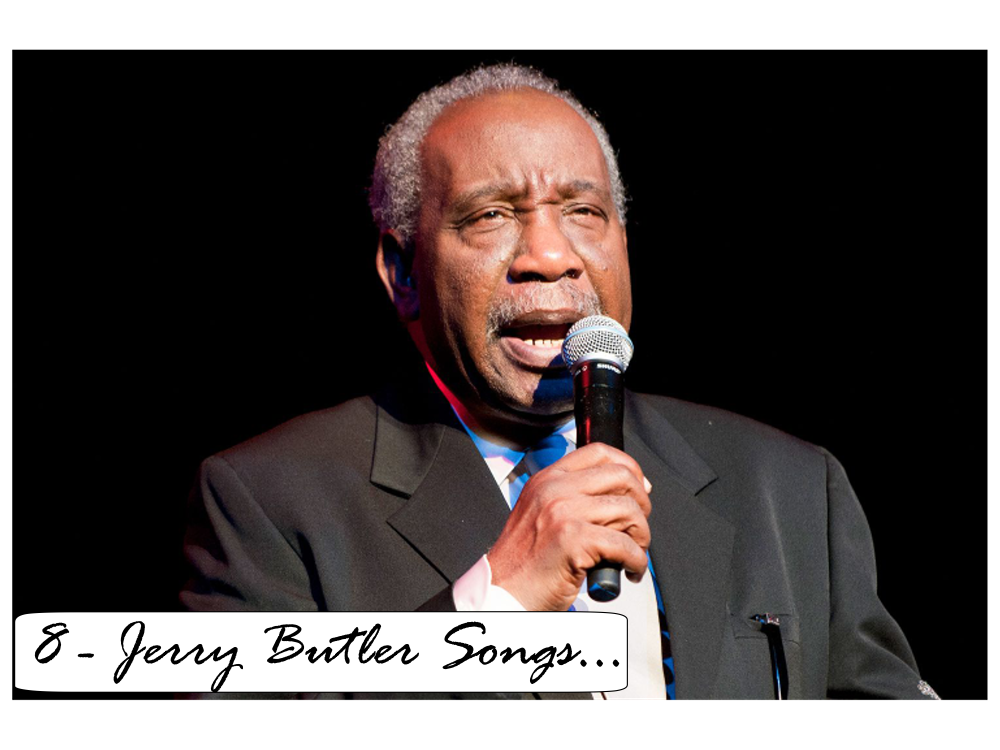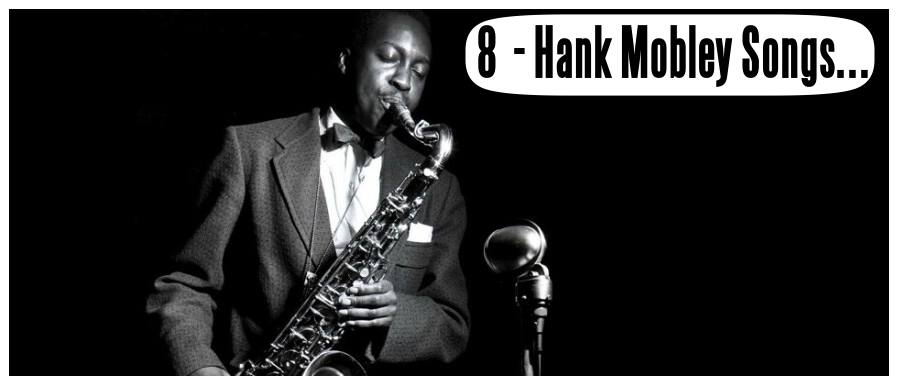(ThyBlackMan.com) When we think of the voices that built soul music from the ground up, Jerry Butler—affectionately known as The Iceman—rises near the top of that list. His voice wasn’t just smooth—it was wise, weathered, and full of heart. He had that rare ability to make you feel like he was speaking directly to you, whether he was singing about devotion, heartbreak, or emotional survival. Butler didn’t just record soul songs—he helped shape the very language of love and vulnerability in Black music.
Sadly, Jerry Butler passed away on Thursday, February 20, 2025, at the age of 85, after a long and courageous battle with Parkinson’s disease. He died at home in Chicago, the very city that helped launch his career and watched him rise from doo-wop pioneer with The Impressions to solo legend and cultural icon. As fans and admirers mourn his loss, it feels only right to celebrate the legacy he left behind—one built on songs that still speak to us today.
So here are eight Jerry Butler songs that continue to resonate—tracks that define why his music will live on long after the lights dim and the stage goes quiet.

1. “For Your Precious Love” (with The Impressions)
This song is not just a classic—it’s a blueprint for everything that would follow in soul balladry. Released with The Impressions before Jerry Butler launched his solo career, “For Your Precious Love” laid the foundation for the Chicago soul sound with its aching vulnerability and restrained orchestration. At the time, few songs dared to express romantic devotion with such raw honesty and melodic purity.
The track opens with Butler’s husky, commanding voice speaking rather than singing the intro—a dramatic gesture that immediately arrests the listener. His monologue adds gravity, setting a tone of solemn dedication before the instruments even join in. As the strings swell and the harmony builds, Butler’s vocals evolve from understated to urgent, capturing the full arc of longing and devotion. His delivery is deliberate, never rushed, allowing every syllable to land with emotional weight. The doo-wop harmonies that back him are light yet poignant, floating like a dream behind his lead.
At a technical level, the arrangement reflects the transition between 1950s doo-wop and 1960s soul. It’s sparse by today’s standards, but that minimalism allows Butler’s voice to shine in the emotional foreground. His use of dynamics—soft in the verses, swelling in the chorus—was masterful and well ahead of his time. It’s the kind of vocal performance that critics still reference when discussing soul’s earliest innovators.
In today’s music climate, where overproduction can sometimes overshadow sincerity, this song is a reminder of the power of minimalism. Listening to it now evokes the same deep ache it did in 1958, proving Butler’s voice can still melt hearts across generations. “For Your Precious Love” is as timeless as love itself. Whether it’s being sampled by modern producers or included in film soundtracks, it remains a benchmark of emotional storytelling through music.
This song works beautifully on any slow jam playlist or even as part of a cinematic backdrop. Its slow pace and sincerity make it perfect for reflective moments, and it remains a hallmark of Butler’s ability to turn simple words into deep emotion. It’s a piece of music history that continues to resonate with every note.
2. “Only the Strong Survive”
A declaration of emotional strength set to a stirring groove, “Only the Strong Survive” became one of Butler’s biggest solo hits and an anthem for perseverance. It was one of the earliest songs to blend therapeutic self-talk with a funk-infused soul rhythm, making it a cornerstone of Butler’s reinvention during the late ’60s. The song speaks directly to the wounded heart, but with a twist—it tells you to get up, dust yourself off, and keep moving forward.
The track blends gospel-tinged vocals with a funky, propulsive rhythm section. It was produced by the legendary Gamble and Huff, marking a key moment in the emergence of Philadelphia soul. Butler sings with conviction, warning heartbroken lovers that while heartbreak is inevitable, survival is optional—and it’s a choice one must make. His voice here is both comforting and commanding, offering tough love in velvet tones.
What makes this song enduring is its message. The idea of resilience in the face of romantic despair is something that remains relevant today. Butler’s performance doesn’t wallow in sadness—it uplifts. The backing arrangement reinforces that with triumphant horn lines, bold bass, and rich background vocals. It’s a masterclass in how to marry lyrical content with musical composition to inspire.
In today’s cultural context—where conversations around emotional intelligence, mental health, and self-love are louder than ever—this song feels even more vital. “Only the Strong Survive” is a reminder that the path forward isn’t easy, but it’s always worth walking. Whether you’re navigating the emotional landscape of a breakup or the broader challenges of life, it feels like a friend pulling you up by the shoulders.
Today, this song can serve as an emotional pick-me-up. Its groove still pops, and its lyrical strength holds steady. It’s a soul classic that ages well, especially in an era where self-care and mental resilience are championed values. It’s not just great music—it’s a philosophy wrapped in rhythm.
3. “Never Give You Up”
Co-written by Gamble and Huff, this track showcases Jerry Butler’s seamless pivot into the Philadelphia soul scene, with lush orchestration and smooth melodies. “Never Give You Up” is a love song that doesn’t beg—it promises, with poise and presence. It was a bold departure from earlier, more melodramatic ballads, embracing a sound that was richer, fuller, and deeply sensual.
The arrangement is rich but never cluttered. A gentle horn section, rhythm guitar, and crisp percussion build the perfect platform for Butler’s voice to shine. His performance is sincere, romantic without being saccharine. He’s not pleading—he’s reassuring, and that distinction makes the song feel mature and grounded. The string lines swirl behind his vocals like a silk ribbon, and the bassline keeps the song grounded in groove.
The track also benefits from its simplicity. Lyrically, it’s a straightforward declaration of loyalty, but Butler’s nuanced delivery gives it gravitas. His baritone exudes patience, like a man who has already proven his commitment and is simply reminding his partner of it. That subtle confidence is part of what makes the song so enduring. It’s not desperate—it’s devoted.
Still relevant today, this song could easily be slipped into any adult R&B or neo-soul playlist. Its themes are universal, and Butler’s vocal delivery remains among the most elegant expressions of steadfast love ever recorded. Artists like Maxwell, Anthony Hamilton, and even John Legend carry the DNA of songs like this in their own work. “Never Gonna Give You Up” is a timeless gem that still glows.
It also works across generations. It’s the kind of love song that you can play at a wedding, hear on a romantic movie soundtrack, or use to unwind on a Sunday afternoon. A song for grown folks—and those who want to love like them.
4. “Let It Be Me” (with Betty Everett)
A duet that has stood the test of time, “Let It Be Me” finds Jerry Butler paired with the equally powerful voice of Betty Everett. Originally a French ballad adapted into English, the song became a huge hit in the U.S., thanks in large part to the emotional nuance of Butler and Everett’s rendition. It’s a song about romantic exclusivity, but also about emotional security—the kind of security that comes from mutual vulnerability.
The chemistry between Butler and Everett is undeniable. Their voices weave together like silk, never overpowering one another but instead existing in perfect harmony. The arrangement is classic and understated, allowing their interplay to take center stage. Everett’s voice is soft yet expressive, while Butler anchors the performance with his signature baritone. Together, they create a dynamic that feels more like a conversation than a performance.
This song is particularly interesting when revisited today because it captures an emotional equality rare for its time. It’s not just a man leading a woman or vice versa—it’s a partnership. Both voices are allowed to breathe, to express, to plead. That mutual longing is what makes “Let It Be Me” resonate in modern ears, where love songs are expected to feel emotionally balanced. It’s also a refreshing change from the possessive tone that can sometimes dominate romantic duets.
What makes this song immortal is the sincerity. There’s no performance here—just pure feeling. The lyrics, though simple, are sung with a sense of finality and purpose: “If life should ever leave me, let it be you.” Even after six decades, the emotional truth in the lyrics hasn’t aged a day. It’s love as commitment, as promise, as sanctuary.
It’s ideal for wedding playlists, anniversaries, or simply moments of appreciation between partners. It’s also perfect for teaching younger generations about duet dynamics, musical empathy, and the art of emotional storytelling. “Let It Be Me” remains one of the greatest duets in soul music history—and it belongs in every music lover’s collection.
5. “I Stand Accused”
“I Stand Accused” is one of the most emotionally intense performances Jerry Butler ever committed to vinyl. A spoken-word intro sets the stage: he’s in love with his best friend’s woman. From that moment on, the song unravels like a courtroom confession, a moment of moral crisis laid bare over swelling strings and aching backup vocals. It’s dramatic—but never melodramatic—because Butler delivers it with such grace and self-restraint.
The intro alone is worth studying. It’s rare to find a soul song where the artist speaks at length before singing, and even rarer for that intro to carry such gravitas. Butler doesn’t just recite—he confesses. He slows the tempo of the moment to a crawl, making the listener feel the emotional weight of every word. There’s no instrumental flourish behind him, just a stillness that lets the tension build. By the time he finally sings, the release is so cathartic it feels like exhale after holding your breath.
Musically, the arrangement is lush, almost orchestral. You can hear early influences of what would later become the Philadelphia soul sound—driven by sweeping strings and subtle brass flourishes. The rhythm section maintains a slow, deliberate pace, underscoring the gravity of the lyrics. Butler’s vocals remain in control, barely rising above a whisper in some moments, then cresting like a wave in others. It’s a lesson in how to use restraint to make a bigger emotional impact. The song doesn’t explode—it reveals.
What elevates “I Stand Accused” from a great soul ballad to a soul masterpiece is its storytelling. This isn’t just about forbidden love—it’s about moral boundaries, guilt, fear, and vulnerability. The song invites the listener into a deeply private, painful moment that Butler treats with poetic sensitivity. It dares to say, “I love you, but I shouldn’t,” and then sits in that discomfort with courage. It’s a slow burn, the kind of song that you truly feel more with every listen.
Even in today’s music landscape, “I Stand Accused” feels timeless. The theme—wanting someone you can’t have, and hating yourself for it—is universal. And Jerry Butler approaches it with the kind of moral complexity that makes this more than just a love song. It’s a character study, a moment of raw human honesty you don’t forget. Few vocalists today even attempt this kind of emotional depth, making this track feel even more essential in the streaming era.
6. “Just Because I Really Love You”
Sometimes, all a great soul song needs is a simple, unshakable truth—and “Just Because I Really Love You” delivers exactly that. This track isn’t flashy. It doesn’t try to reinvent the genre. What it does do is remind listeners just how powerful sincerity can be when wrapped in the warmth of Jerry Butler’s voice. It’s one of his more underappreciated cuts, and yet it feels like a quiet anthem for true love.
The arrangement is smooth and relaxed, driven by a gentle bassline, soft guitar strums, and a sprinkling of strings. There’s no urgency here—just peace. Butler leans into the groove with unforced charm, letting each phrase ride the rhythm naturally. It’s the kind of arrangement that lets the song breathe, allowing the listener to absorb each lyric without distraction. The vocal is fluid, unhurried, as if Butler is sitting across from you, speaking from the heart.
Lyrically, it’s about assurance. Butler’s message is clear: “You don’t have to wonder why I’m here or what I want—it’s just because I really love you.” That kind of emotional transparency is disarming in the best way. It cuts through the noise of game-playing and mixed signals and says, “This is real.” In a music world often dominated by spectacle or heartbreak anthems, this song offers something radical: gentle, unwavering love without apology or pretense.
What’s also special here is the absence of ego. There’s no begging, no theatrics—just vulnerability wrapped in certainty. That’s a fine line few vocalists can walk without sounding passive or overly sentimental, but Butler strikes the perfect balance. He sounds like a man who knows himself and knows the value of the woman he’s singing to.
“Just Because I Really Love You” is perfect for moments of reflection, acts of gratitude, or simply when you want to feel grounded in love. It shows Butler at his most tender and his most human—a soul man not selling fantasy, but offering truth. For anyone looking to understand the heart of Jerry Butler’s artistry, this song is a must. And for anyone who’s ever loved without needing a reason—this song feels like coming home.
7. “Ain’t Understanding Mellow” (with Brenda Lee Eager)
This duet with Brenda Lee Eager adds a slightly psychedelic soul twist to Jerry Butler’s usual formula. “Ain’t Understanding Mellow” is a slow-burning, almost philosophical song about the complexity of human relationships, particularly when misunderstandings cloud love. It’s one of those rare soul songs that doesn’t give easy answers—it dwells in the emotional gray zone.
Eager’s voice blends beautifully with Butler’s; they don’t just sing to each other—they sing through each other’s pain. There’s a sadness to their voices that suggests long histories and fragile hopes, making the track a powerful study in emotional nuance. Their vocal lines are woven together in a conversational format, giving the song an almost theatrical arc—like we’re overhearing a scene between two people on the verge of losing what they’ve built.
The production is rich, with a blend of electric piano, gentle strings, and a subdued rhythm section. It creates a soft, contemplative atmosphere, allowing the vocals to remain the emotional centerpiece. Butler, often known for his commanding delivery, holds back here, letting the silence between notes speak just as loudly. It’s a performance built on restraint and reflection.
What stands out about this song today is how it doesn’t rush to resolve conflict. It sits in the discomfort. In an age where songs often glorify toxic dynamics or paper over real tension, “Ain’t Understanding Mellow” feels refreshingly honest. It tells us that love isn’t always clean—and that’s okay. This is a perfect song for quiet evenings, introspective moments, or for those who appreciate music that asks more questions than it answers. It showcases Butler’s rare ability to balance melody and message.
8. “Make It Easy on Yourself”
Originally penned by the legendary Burt Bacharach and Hal David, “Make It Easy on Yourself” became one of Butler’s signature solo performances. It’s a ballad steeped in sadness and dignity—a breakup song sung by someone who wants to let go the right way. Rather than accuse or condemn, Butler’s narrator offers compassion. It’s the kind of grown-man soul that treats emotional pain with respect.
Butler’s vocal restraint is the real highlight here. He doesn’t sob or wail—he gently releases. His baritone glides through the melody like a man holding back tears, not out of denial but out of deep understanding. This emotional maturity gives the song its enduring weight. The orchestral backing gives it a cinematic scope, making every verse feel like a closing scene in a love story.
The lyrics—“Breaking up is so very hard to do”—are simple, but in Butler’s hands, they become profound. He turns the cliché into poetry with vocal control and understated emotion. The strings don’t just accompany his voice—they echo his sense of loss. It’s a song that refuses to take shortcuts emotionally. It stays with the hurt, but never lets it define the singer’s identity.
Even now, this song works as the perfect farewell to any love that’s run its course. Its class and composure make it a must-listen for those navigating emotional transitions with grace. You can hear the early DNA of Luther Vandross, Peabo Bryson, and even Maxwell in how this track approaches romantic vulnerability.
Whether played during a late-night drive, a reflective solo walk, or during a poignant scene in a film, “Make It Easy on Yourself” never loses its power. It’s an emotionally intelligent ballad that reminds us that endings can be beautiful—even when they hurt.
Jerry Butler gave us more than music—he gave us emotional clarity. He gave voice to the soft-spoken man, the heartbroken lover, the survivor of pain. Each song on this list captures a different facet of his artistry, from youthful longing to grown-man wisdom. And while he’s no longer with us in body, his voice still lingers—warm, wise, and unwavering.
In a world that often rushes past feeling, Butler reminded us to sit with our emotions, to own our stories, and to sing them out loud. Whether you’re discovering him for the first time or revisiting old favorites, let these songs carry you into the heart of what real soul music sounds like.
Rest in power, Iceman. You made it look easy, and you made it sound even better.
Staff Writer; Jamar Jackson

















Great article, as always, and its right on point with the exception of I Stand Accused, Although I agree with a lot of your assessment of the song, Jerry didn’t do that song in Philadelphia. And i believe that you are mistaking his version with the Issac Hayes version where Ike, begins by rapping out what Jerry, previously sang years earlier. And although both versions were excellent for their times. I got to give the original the edge. Although Ike put more emphasis and better orchestration into his version.
Thanks to You
Sad Eyes
Whatever You Want
But this is just me